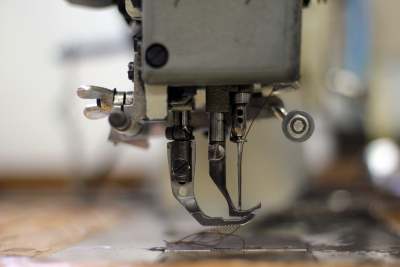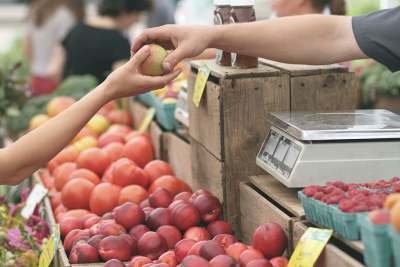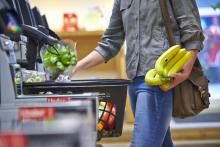Cutting food waste
Some people found that moving to online grocery shopping helped to cut shopping bills and waste.
“Ordering groceries online has the advantage that you only buy what you need. It means less food waste.” – @anushaiyer from Cambridge.
Several readers suggested using food waste apps like Olio or Too Good To Go, where locally reduced food is available. Others recommended learning how to store food properly to reduce wasting food you have bought, for example, which things are best not kept in the fridge.
Many others also recommended using local surplus food projects, often run by community groups, volunteers or charities. “Check if there is a community fridge in your area. They distribute free unsold fresh food that would otherwise be thrown away. It is for anyone to use.” said Anna from Norwich. Search online and ask locally as surplus food projects/community fridges may be called different things in different areas.
Several people recommended following Jack Monroe aka @bootstrapcook, and using their recipes from cookingonabootstrap.com. Monica said “Take ideas from chefs like Tom Hunt or Max La Manna, or websites like Love Food Hate Waste for ideas on how to save money while avoiding waste.”
For fresh fruit and veg people were turning to local shops.
Giulia from Dorchester told us that she has cut food bills this way and helped save the environment. “I now buy fruit and veg from the local farm shop, and only once a week ... by buying once a week only I ensure I use up what I have. I noticed I have wasted less food and saved money.”
“Be flexible in habits depending on what ethical items are available cheaply at the time. For example, buy seasonal fruit and vegetable not imported items.” Jenny from Pyworthy.
Other people were very keen to use up all leftover food, so there was no money wasted. “On the day before you shop, use up every veg you can by making soup or a ratatouille or a vegetarian casserole. Once new veg are in the fridge the older ones look unappetising and get left,” said one reader.
Growing your own to save money
Growing your own veg is also popular among readers.
Mendi from Cumbria said “Grow mint and other things in pots and use for herb teas and instead of squash”, whilst others recommended getting an allotment either with neighbours or on your own.
Rowena in Devon told us, “I’ve grown all my veggies and plants from seed this year, and plan to save the seed for next year as I chose heritage type seeds. I’m also composting like mad and making leaf mould as well as comfrey and nettle fertiliser to reduce what I need to buy from a garden centre.”
Leann from Leeds said "75% of our veg and fruit comes from our allotment, we reckon it saves us nearly £1200 a year compared with buying organic produce, even factoring cost of rent, compost, seeds".
Meanwhile Laura from London ( @myfairladle ) is not letting anything go to waste. “Regrowing food (spring onions, lettuce, cauliflower) rather than throwing away the stalks.”
If you have saved seeds you can have informal seed swaps with friends and neighbours, or some places hold organised seed swap stalls and events.
One person recommended growing perennial vegetables to save on always buying more seeds/plants.
You can also make your own compost from your food waste, said Justine from London.
Also mentioned was gardenorganic.org.uk by Barbara from Essex as a good source of information on growing fruit and veg.
Foraging
“Get foraging” says Lucinda from London “It is possible in cities! There is wild garlic on Tooting Common in spring and the elder flowers are just starting to bloom. I'm going to be picking some on Monday to make elder flower cordial. Just remember to always leave some for others.”
You can forage for seasonal wild fruits, herbs and other foods. People suggested getting a good book on it or reading up online, and picking responsibly.












